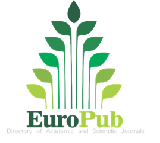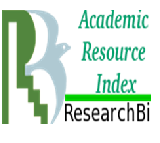Kelvin Open Science Publishers: Revolutionizing Open Access Publishing
Kelvin Open Science Publishers is a pioneering initiative in the realm of academic publishing, focused on fostering an open, transparent, and accessible approach to scientific knowledge dissemination. As the academic world increasingly shifts toward open access models, Kelvin Open Science Publishers stands out for its commitment to making research findings freely available to a global audience, while supporting authors in sharing their work without the traditional barriers of high subscription fees or paywalls.
Latest Articles
|
Case Study | Volume: 1, Issue: 1 Published Date: September 18, 2025 Economy of Survival and Renewal Case of Ukraine Authors: Olena Lesyk-Laikari* Abstract: Three years of russia's full-scale invasion has faced Ukraine's economy unprecedented shocks, yet it has also demonstrated remarkable resilience. This paper examines how war has simultaneously damaged devastating losses and local management created opportunities for innovation, reform, and structural transformation. Drawing on recent macroeconomic data, institutional assessments, and international aid trends, the paper explores Ukraine's evolving economic security, its vulnerabilities, and strategic directions for post-war recovery and integration into the European economy. |
|
Editorial Article | Volume: 1, Issue: 1 Published Date: August 06, 2025 Strategic Investments and Acquisitions to Expand Growth of Telemedicine Business across the Globe Authors: Dhananjay Punekar* Abstract: Enforcement of strict government norms during the COVID-19 pandemic pertaining to restricted physical contact among people to control the spread of COVID-19 has expanded the scope of telemedicine services globally. |
|
Research Article | Volume: 1, Issue: 1 Published Date: December 29, 2023 The Evolution of Financial Decision Support Systems: From BI Dashboards to Predictive Analytics Authors: Anirudh Parupalli* Abstract: Decision Support Systems (DSS) are rooted back in the pre-personal computing era, as they developed out of the earlier Decision Management System to become interactive, computer-based tools in semi-structured and unstructured decision-making. The DSS developed over time with four generations: data-centric, interface-focused, model-oriented, and web-based, which denotes the changes in technologies and the extension of its use across various fields of knowledge. Financially, globalization, market volatility and newer technologies have placed an added premium on the importance of intelligent data-driven decisioning. Leading Financially-oriented Decision Support Systems (FDSS) combine predictive analytics and Business Intelligence (BI) dashboards and machine learning to distil operational insights using a wide variety of data. |
|
Research Article | Volume: 1, Issue: 2 Published Date: September 08, 2025 The Bird's Nest Metaphor: From Biblical Text to Mystical Vision Authors: Julian Ungar-Sargon, MD, PhD* Abstract: This comprehensive study examines the evolution of the kan tzipor (bird?s nest) metaphor from its origins as a biblical agricultural commandment in Deuteronomy 22:6-7 through its transformation into one of the most sophisticated theological frameworks in Jewish mystical thought. The analysis traces three distinct but interconnected developments: first, the hermeneutical journey from pshat (literal interpretation) through rabbinic debate to mystical vision, demonstrating how Jewish interpretive tradition transforms concrete biblical imagery into profound theological insight; second, the systematic development of the nest metaphor in Jewish mysticism from midrashic foundations through Zoharic innovation to Lurianic cosmic theology; and third, contemporary theological applications that bridge academic scholarship with clinical practice. |
|
Short Communication | Volume: 1, Issue: 2 Published Date: September 06, 2025 Training an ML Model Just Like How a Baby Learns Authors: Jacintah Kimeu* Abstract: Training data + machine learning = A machine learning model There are three parts to a machine learning model. i. The training data. ii. The machine algorithm programmed to have machines learn from the data. iii. The model itself. But how do the machines learn from the data? |
|
Research Article | Volume: 1, Issue: 2 Published Date: September 04, 2025 Authors: Julian Ungar-Sargon, MD, PhD* Abstract: This study examines three distinct yet convergent critiques of contemporary biomedical practice: Alfred Ziegler's archetypal medicine grounded in Jungian analytical psychology, Dennis Patrick Slattery's phenomenological documentation of archetypal healing processes, and our embodied theological approach integrating Jewish mystical concepts with clinical neurology. Through comparative analysis informed by medical anthropology, phenomenology, and critical medical humanities, this investigation evaluates the theoretical contributions, methodological implications, and practical limitations of these approaches. |
|
Research Article | Volume: 1, Issue: 2 Published Date: September 03, 2025 Authors: Nimcaan M .Mohamed, Soheir H. Ahmed, Abdirahman Khadar Abdihaad and Abdiaziz Ali Nour Abstract: Colostrum is defined as the first initiation of breast milk within the 1 hour of birth. Globally, it estimated that everyday about 4,000 infants and young children die due to lack of colostrum within the first hour after birth. Initiation of colostrum in the first hours after birth gives the new borns antibodies that protect them against disease. Objectives: The aim of this study was to assess the prevalence of colostrum feeding practice and associated factors among mothers of babies born at Hargeisa Group Hospital in Hargeisa, Somaliland, 2021. |
|
Research Article | Volume: 1, Issue: 2 Published Date: September 01, 2025 Embodied Theology for End-of-Life Care: A Being-With-Nonbeing Approach to Dying Patients Authors: Julian Ungar-Sargon, MD, PhD* Abstract: Contemporary end-of-life care often fails to address the existential terror that accompanies dying the visceral fear of nonbeing that cannot be resolved through medical information alone. This article proposes an embodied theological framework called ?Being-With-Nonbeing?, which draws on Kabbalistic concepts of at zmut (divine essence) and ayin (nothingness), interpreted primarily through Elliot Wolfson's revolutionary analysis of Jewish mystical dialectics. Building on extensive theological scholarship examining the sacred-profane dialectic in therapeutic encounters, this approach offers practical bedside interventions that help patients and clinicians embody the paradox of presence-within-absence. |
|
Editorial Article | Volume: 1, Issue: 1 Published Date: August 25, 2025 Sobriety a Poor Treatment Option? One Hundred Years of Opioid Treatment Re-visited Authors: Constantine Ioannou M.D* Abstract: In my previous role of Vice Chairman of Psychiatry, and Director of Substance Abuse Services at Nassau University Medical Center, I was given the task of developing a strategy that would address the rising number of addicted individuals, while decreasing poorly funded inpatient beds. Reviewing the literature I found. |
|
Research Article | Volume: 1, Issue: 2 Published Date: August 21, 2025 Cyber Law and the Regulation of Digital Platform Examine Authors: Dr. Pallavi Gupta Abstract: The growing use of the internet in the last decade of the 20th century gave rise to a new area of law that known as Cyber Law. In the cyber era and with the invent of artificial intelligence number of digital landscape are rapidly evolved. When artificial intelligence and technology plays a significant role in our daily lives, the question arises, whether existing cyber law is sufficient to handle new type of cybercrime, if committed, or to regulate digital platform if irregularity or misuse committed by anyone or to regulate misuse or damage committed by artificial intelligence. |
ON BOARD EDITORS

Prof. Vincenzo Maria Romeo
Clinical and Dynamic Researcher
University of Palermo
Palermo, Italy

Dr. Agni Kakouri
Department of Surgery and Ophthalmology
The University of Texas Health Science Center
Houston, Texas, United States

Dr. James Hutson
Lead XR Disruptor and Department Head of Art History
AI, and Visual Culture
Lindenwood University, USA


Dr. Tejesh Reddy Singasani
Doctor of Philosophy Information Technology
School of Computer and Information Sciences
University of Cumberlands, USA
Indexing









